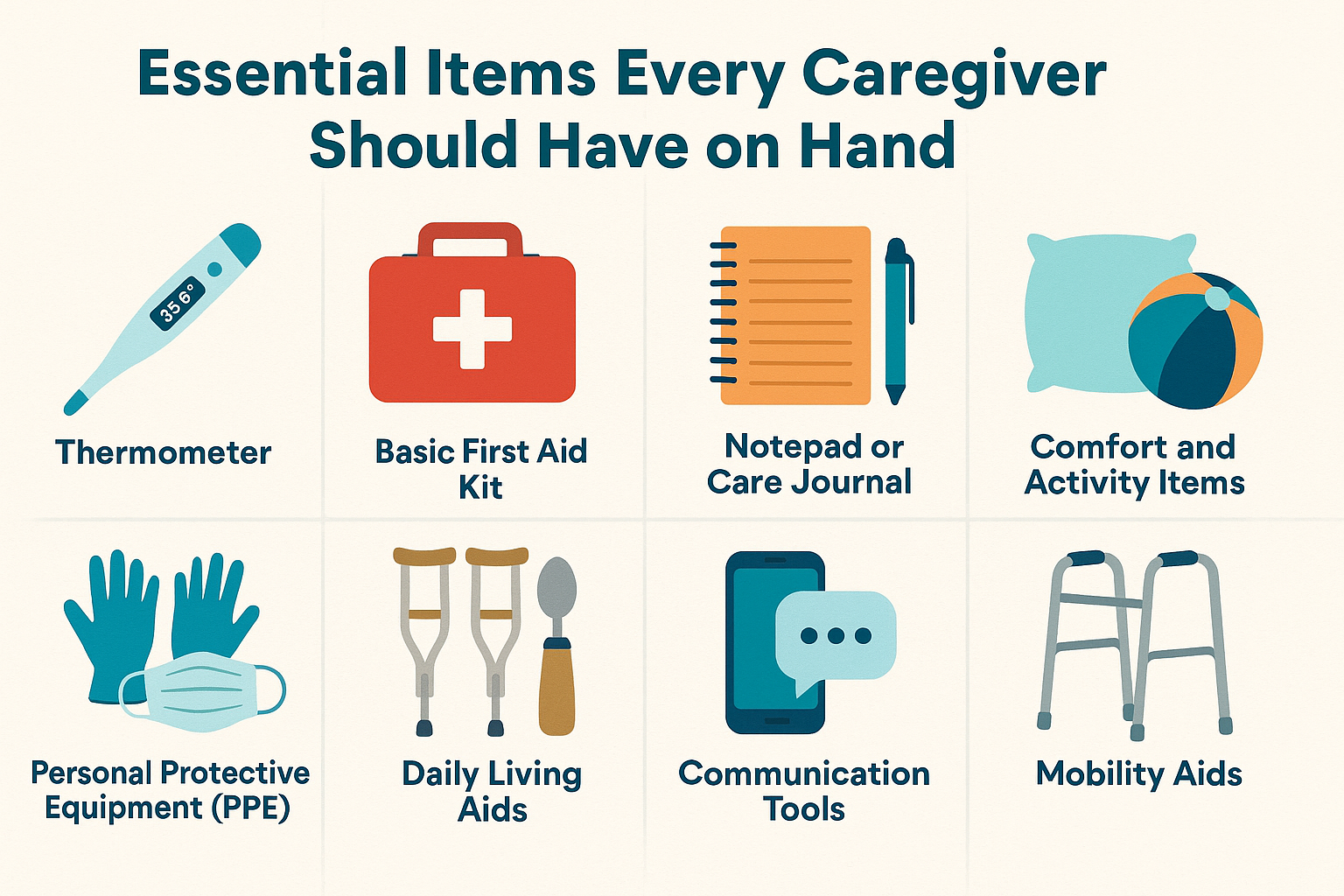
Essential Items Every Caregiver Should Have on Hand
Being a caregiver is no easy task. Whether you’re doing it professionally or caring for a loved one, the journey is filled with challenges and unknowns. Having the right tools can make a big difference in your daily routine and in the comfort of those you care for.
Below are essential items every caregiver should carry in their bag:
1. Thermometer- A reliable thermometer—whether infrared or digital—is essential. According to the AARP, it’s important to choose the type best suited to the person you’re caring for. For example, oral thermometers may not work well for everyone. A contactless option may be more comfortable and practical for some.
2. Basic First Aid Kit- You never know when you’ll need a bandage or some Tylenol. A well-stocked first aid kit should include:
-
Bandages
-
Ibuprofen
-
Hand sanitizer
-
Gauze
-
Tweezers
Consider any specific needs of the person you’re caring for. For example, if they have diabetes, glucose pills or sugary drinks are a must.
3. Notepad or Care Journal- Keeping a care journal helps track important daily details. Record information like:
-
Medications taken
-
Meals consumed
-
Hours of sleep
-
Mood or pain levels
These notes are helpful for doctors’ visits and managing long-term care.
4. Comfort and Activity Items
Comfort matters. Crossword puzzles, books, and other quiet activities help keep the person engaged. Comfortable clothing, like compression socks, can also make a difference.
On the Mend offers a wide range of compression garments and cozy items perfect for caregiving.
5. Personal Protective Equipment (PPE)
Masks, gloves, and other PPE help protect both you and the person you’re caring for. It’s a good idea to have extras on hand at all times.
6. Daily Living Aids
Daily living aids are tools that support independence. These can include:
-
Button hooks
-
Reachers
-
Adaptive utensils
-
Pill organizers
They’re especially helpful for individuals with physical or cognitive challenges.
7. Communication Tools
Communication is key. Consider having:
-
Emergency call buttons
-
Whiteboards or notepads
-
Hearing aids
-
Video calling apps like FaceTime or Zoom
These tools can help the person feel more connected to their loved ones and reduce feelings of isolation.
8. Mobility Aids
Mobility aids such as wheelchairs, walkers, and canes are essential for those with limited mobility. Always make sure the equipment fits well and is in good condition.
Don’t Forget to Care for Yourself
Caregiving can take a toll—physically, mentally, and emotionally. Make sure you’re:
-
Getting enough rest
-
Eating well
-
Drinking plenty of water
A healthy caregiver is better equipped to provide quality care.

